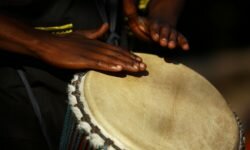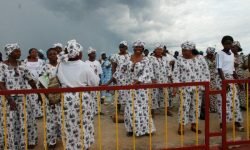Equatorial Guinea’s culture dancingEquatorial Guinea has a rich and varied culture; migrations from the 18th century onwards have led to cultural diversity that is reflected in the country’s music, arts and language. A former Spanish colony with historical links to … Continue reading
Equatorial Guinea Globetrotters

In this section of the website, we will profile a number of Equatoguineans living in the UK, allowing us to learn about their experiences living and working in the country. In each interview, the Equatoguinean expats will detail their likes/dislikes … Continue reading
Music

Music musicFolk music is very popular within Equatorial Guinea; the largest ethnic group, the Fang, are known for their use of a musical instrument called mvet, a harp-like instrument with up to fifteen strings. The semi-spherical part of this instrument … Continue reading
Food

The food of Equatorial Guinea is known for its variety and is heavily influenced by traditional African food, as well as European traditions. Rural areas base their dishes primarily on meat and fish, with more urban areas offering Spanish-influenced restaurants … Continue reading
Art

Equatorial Guinea is known for traditional sculpture and mask making. Don Leandro Mbomio Nsue (1932-2012) was one of the most famous sculptors and artists of Equatorial Guinea. Mbomio carried out his basic studies at the School of Arts and Crafts … Continue reading
Fermina Lawson, December Globetrotter

As part of the Embassy’s Globetrotters programme, we profile a different UK-based Equatoguinean each month, allowing us to learn about their experiences living and working in the country. In each interview, the Equatoguinean expats will detail their likes/dislikes of the … Continue reading
Balduino Borico, November Globetrotter

As part of the Embassy’s Globetrotters programme, we profile a different UK-based Equatoguinean each month, allowing us to learn about their experiences living and working in the country. In each interview, the Equatoguinean expats will detail their likes/dislikes of the … Continue reading

